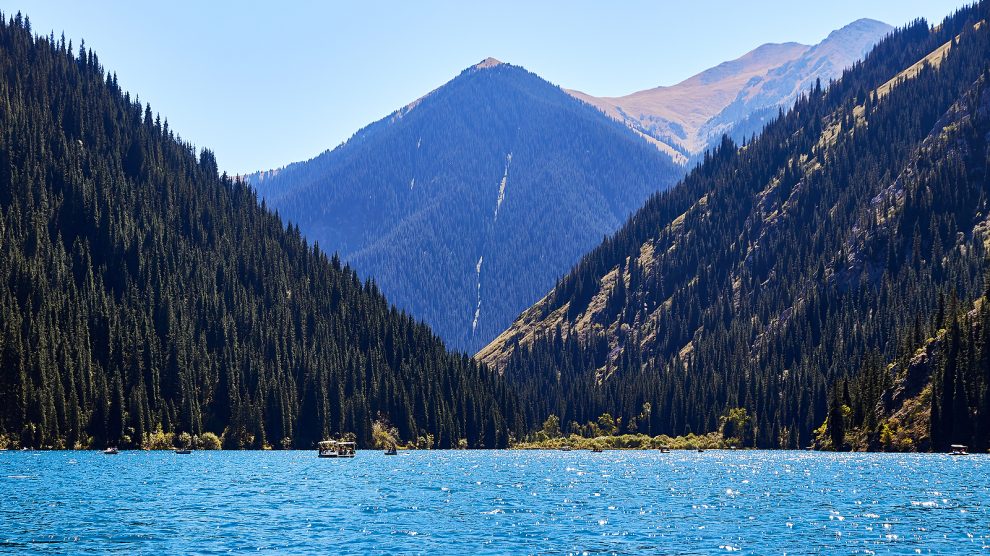Inaction to tackle climate change and its consequences will negatively impact the close economic, trade and investment ties between our regions, as well as our populations, says Kazakhstan’s Minister of Ecology and Natural Resources Zulfiya Suleimenova.
The climate crisis is reaching a tipping point. Just last month the United Nations Intergovernmental Panel on Climate Change delivered a final warning to humanity, as rising greenhouse gas emissions push the world to the brink of irrevocable damage that only swift and drastic action can avert.
Along with the rest of the world, Europe and the Central Asian region faces increasing vulnerability to climate change, as warmer temperatures and more volatile weather patterns disrupt ecosystems and increase the frequency of extreme droughts, floods, heat waves, and forest fires.
- Kazakhstan could be key to Europe’s energy transition
- Kazakhstan is becoming a regional hub for foreign investment
- Foreign investors look set to back Kazakhstan’s economic reset
According to the World Bank, if no action is taken, economic damage from droughts and floods in Central Asia are projected to be up to 1.3 per cent of GDP per annum, while crop yields are expected to decrease by 30 per cent by 2050, leading to around 5.1 million internal climate migrants by that time.
European countries will not fare any better. Without adaptation, more than 400,000 jobs are expected to be lost annually by 2050, with the overall cost of climate-related extreme weather reaching 170 billion euros by the end of the century.
To avert such scenarios, Central Asia and Europe must work together to tackle the consequences of climate change.
A different path
It is not a secret that the economy of Kazakhstan, the largest state in Central Asia, has relied heavily on the extractive industry and oil resources. Undoubtedly this helped us to get back on our feet after we gained independence in 1991 following the collapse of the Soviet Union.
Europe has also made use of our traditional energy resources. Kazakhstan is the third largest supplier of oil to Germany after Norway and the UK. With over 70 per cent of our oil exports going to the EU (six per cent of EU oil demand), Kazakhstan is already the EU’s third largest non-OPEC supplier.
However, the impact of climate change means we need to take a different path, one that leads towards sustainable development and a green economy. This process can be accelerated if Kazakhstan and Europe pool their resources together.
As such, an important step in reaching a low-carbon future is restructuring the energy sector and introducing low-emission alternatives. This would require actions in two directions – embedding renewables in energy balance and ensuring sustainable supply of materials for a sustainable energy transition.
Specifically, in 2021, Kazakhstan announced its goal to reduce greenhouse gas emissions (of the 1990 level) by 15 per cent by 2030 and to achieve carbon neutrality by 2060.
This will not be straightforward, as our reliance on traditional energy is significant. However, Kazakhstan has huge renewable energy potential too, particularly wind, which can form the basis for a low-carbon future.
Kazakhstan is aiming to expand energy production from renewables fivefold (from three to 15 per cent). Additionally, a target has been set to reduce the share of energy generated from coal by nearly 30 per cent, from 69 to 40 per cent. The reduction measures will be combined with efforts aimed at an increase of the national carbon absorption capacity by planting two billion trees by 2025.
Materials for the transition
Another important direction is ensuring a sustainable supply of the rare earth materials that are critical for green transition. Kazakhstan has large deposits of gold, chromium, copper, lead, lithium, and increasingly coveted rare earth metals essential to the manufacture of technology ranging from smart phones and wind turbines to electric vehicle rechargeable batteries.
Europe, meanwhile, is taking steps to diversify its rare earth supply chains. Last November, on the sidelines of COP27 in Egypt, the European Commission and Kazakhstan signed a Memorandum of Understanding to develop supplies of rare earth magnates, cobalt, lithium, and polysilicon. The agreement contributes to a green transformation by focusing on the development of a secure and sustainable supply of raw and refined materials, renewable hydrogen and battery value chains.
As highlighted by Ursula von der Leyen, President of the European Commission, “a secure and sustainable supply of raw materials, refined materials and renewable hydrogen is a key layer to help build a new, cleaner foundation for our economies, especially as we move away from our dependency on fossil fuels.”

Cooperation is crucial
To take the next step forward, we need to build networks, coalitions, and trust among other stakeholders. The Astana International Forum in June will provide a good opportunity for this.
It is envisioned that the forum will bring together high-level government representatives from all over the world, as well as members of international organisations and business circles, to discuss ways to navigate current global challenges, including climate change and energy security.
Inaction to tackle climate change and its consequences will negatively impact the close economic, trade and investment ties between our regions, as well as our populations.
It is therefore crucial that we work together towards building cooperation for the green transition, which will benefit us all ‒ Central Asia and Europe.
Unlike many news and information platforms, Emerging Europe is free to read, and always will be. There is no paywall here. We are independent, not affiliated with nor representing any political party or business organisation. We want the very best for emerging Europe, nothing more, nothing less. Your support will help us continue to spread the word about this amazing region.
You can contribute here. Thank you.







Add Comment